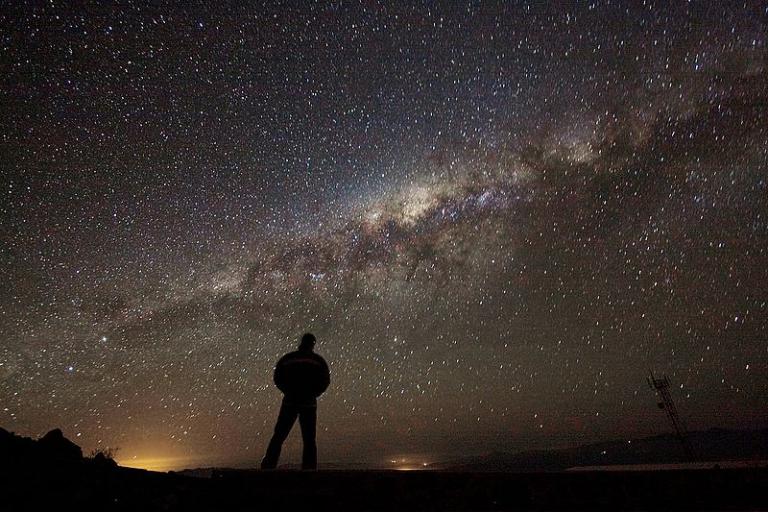
(Wikimedia Commons)
“How sweet the moonlight sleeps upon this bank!
Here will we sit and let the sounds of music
Creep in our ears: soft stillness and the night
Become the touches of sweet harmony.
Sit, Jessica. Look how the floor of heaven
Is thick inlaid with patines of bright gold:
There’s not the smallest orb which thou behold’st
But in his motion like an angel sings,
Still quiring to the young-eyed cherubins;
Such harmony is in immortal souls;
But whilst this muddy vesture of decay
Doth grossly close it in, we cannot hear it.”
(Lorenzo, in Act V, Scene 1 of William Shakespeare’s The Merchant of Venice)
“In the discoveries of science the harmony of the spheres is also now the harmony of life. And as the eerie illumination of science penetrates evermore deeply into the order of nature, the cosmos appears increasingly to be a vast system finely tuned to generate life and organisms of biology very similar, perhaps identical, to ourselves. All the evidence available in the biological sciences supports the core proposition of traditional natural theology – that the cosmos is a specially designed whole with life and mankind as a fundamental goal and purpose, a whole in which all facets of reality, from the size of galaxies to the thermal capacity of water, have their meaning and explanation in this central fact.
Four centuries after the scientific revolution apparently destroyed irretrievably man’s special place in the universe, banished Aristotle, and rendered teleological speculation obsolete, the relentless stream of discovery has turned dramatically in favor of teleology and design, and the doctrine of the microcosm is reborn. As I hope the evidence presented in this book has shown, science, which has been for centuries the great ally of atheism and skepticism, has become at last, in the final days of the second millennium, what Newton and many of its early advocates had so fervently wished – the “defender of the anthropocentric faith.”
(Michael Denton, Nature’s Destiny: How the Laws of Biology Reveal Purpose in the Universe)
“To get our universe, with all of its potential for complexities or any kind of potential for any kind of life-form, everything has to be precisely defined on this knife edge of improbability…. [Y]ou have to see the hands of a creator who set the parameters to be just so because the creator was interested in something a little more complicated than random particles.”
(Francis Collins)












